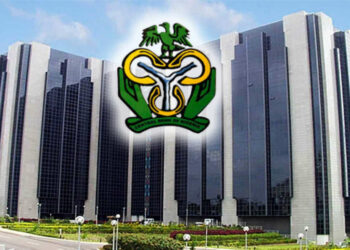In a recent report by the National Pension Commission (PenCom), Nigeria’s pension fund assets have witnessed a substantial rise, reaching a remarkable N17.658 trillion as of October 31, 2023.
This marks a noteworthy increase of approximately 1.78 per cent when compared to the N17.349 trillion reported as the net asset value in September 2023.
The details of this financial development were disclosed in PenCom’s monthly report for October 2023.
The data reveals a robust trajectory in the total pension fund net asset value, climbing from N17.349 trillion in September to the current N17.658 trillion. A deeper analysis of the figures exposes the dominance of investments in Federal Government of Nigeria (FGN) securities, constituting about N11.419 trillion or 64.67 per cent of the total net asset value (NAV). Additionally, Pension Funds allocated N1.881 trillion to Corporate Debt Securities and N1.688 trillion to Money Market Instruments. Investments in ordinary shares of local companies experienced a commendable 3.17 per cent rise, reaching N1.430 trillion from N1.386 trillion in September.
Fund allocation dynamics reveal that Fund II, the default Retirement Savings Account (RSA) Fund under the Multi-Fund Structure, maintained the largest share of the Active RSA Funds allocation, standing at N7.581 trillion or 43 per cent of the total fund NAV. Meanwhile, Fund III observed a 1.62 per cent increase, rising from N4.754 trillion to N4.831 trillion, securing its second position for fund allocation.
In parallel, RSA membership exhibited a growth of 1.15 per cent for October 2023, totaling 10,140,929 members compared to 10,025,314 members in July 2023.
The optics of Pension Funds’ Net Asset Values underline a remarkable surge, escalating from N14.9 trillion in December 2022 to an impressive N17.7 trillion in October 2023. This substantial increase of N2.8 trillion represents an 18.79 per cent growth.
To provide context, between 2021 and 2022, Pension Fund Assets witnessed a comparatively modest rise of N1.57 trillion, increasing from N13.42 trillion to N14.99 trillion.
This upward trajectory is attributed to a combination of heightened pension fund contributions and an increase in portfolio values. For instance, FGN Securities observed a noteworthy rise in its Net Asset Values, ascending from N9.64 trillion in 2022 to N11.19 trillion as of October 2023.
In tandem with these financial developments, the Central Bank of Nigeria’s Q3 2023 quarterly economic report sheds light on the consumer credit landscape. Notably, personal loans constituted a significant 74.8 per cent of consumer credit, with retail loans making up the remaining 25.2 per cent.
The CBN reported a 15.5 per cent growth in consumer credit outstanding, reaching N3.05 trillion compared to N2.64 trillion at the end of the preceding quarter. The report also emphasized the composition of consumer credit, with personal loans accounting for the larger share (74.8%) and retail loans accounting for the balance (25.2%). As a share of total sectoral credit from the Other Depository Corporations (ODCs), consumer credit rose to 7.8 per cent from 7.0 per cent in the preceding quarter.
Against the backdrop of surging inflation in Nigeria, with indications that it may hit 30 per cent by December 2023, citizens are grappling with the escalating cost of living.
The World Bank estimates that inflation pushed an estimated four million more Nigerians into poverty in the first five months of this year. Currently, about 133 million Nigerians are multidimensionally poor, and if inflation persists, there is a high risk that more Nigerians will fall into poverty.
In response to these challenges, more Nigerians are resorting to borrowing to meet daily needs, with a report by SBM Intelligence indicating that 27 per cent of Nigerians across different income categories resort to loan apps to sustain their living expenses amid rising inflation.





